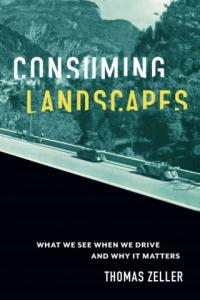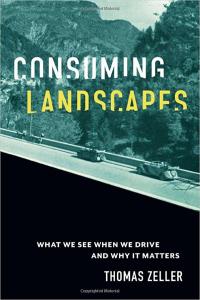Thomas Zeller

Professor, History
tzeller@umd.edu
2117 Taliaferro Hall
Get Directions
Research Expertise
Global Interaction and Exchange
Technology, Science, and Environment
Thomas Zeller, a specialist in environmental history and the history of technology, has published books and articles on the historical interplay of technology and environment in shaping landscapes. He is currently working on a book entitled Driven to Death: How We Came to Disregard Car Crashes, which is under contract with Johns Hopkins University Press. His book Consuming Landscapes: What We See When We Drive and Why It Matters was published by Johns Hopkins University Press in 2022. An open-access version of the book is available HERE. Another book, Driving Germany: The Landscape of the Autobahn, 1930-1970 was published in 2007 (paperback edition 2010). Driving Germany is a revised English translation of Strasse, Bahn, Panorama (2002).
Zeller is the coeditor of two volumes on the environmental history of Germany: How Green Were the Nazis? Nature, Environment, and Nation in the Third Reich, coedited with Franz-Josef Brüggemeier and Mark Cioc (Athens: Ohio University Press, 2005) and Germany's Nature: Cultural Landscapes and Environmental History, coedited with Thomas Lekan (New Brunswick: Rutgers University Press, 2005). With Christof Mauch, he has coedited the volumes The World Beyond the Windshield: Roads and Landscapes in the United States and Europe (Athens: Ohio University Press, 2007) and Rivers in History: Perspectives on Waterways in Europe and North America (Pittsburgh: University of Pittsburgh Press, 2008).
Zeller's research has been supported by two Scholars Awards from the Program in Science and Technology Studies (STS) at the National Science Foundation, by the John W. Kluge Center at the Library of Congress, by the Program in Garden and Landscape Studies at Dumbarton Oaks/Harvard University, and by the Rachel Carson Center for Environment and Society at the University of Munich. He was also a Visiting Research Fellow at the German Historical Institute in Washington, D.C. During the academic year 2022-23, Zeller was the Arthur Molella Distinguished Fellow at the Lemelson Center for the Study of Invention and Innovation at the National Museum of American History, Smithsonian Institution
Publications
Thomas Zeller's article published in Technology and Culture
Imagining Landscapes
Author/Lead: Thomas Zeller
Thomas Zeller's newest article, "Imaging Landscapes: Road, Race, and Power" is published in Technology and Culture 64.4 (Oct. 2023): 1261-1273.
DOI: https://doi-org.proxy-um.
Thomas Zeller | Consuming Landscapes
Thomas Zeller's new book, Consuming Landscapes, was recently released by Johns Hopkins University Press.
Author/Lead: Thomas Zeller
Thomas Zeller's new book, Consuming Landscapes, was recently released by Johns Hopkins University Press. It is available both as a printed book and in an open access version, thanks to a grant from the University of Maryland libraries.
According to the publisher's website, "What we see through our windshields reflects ideas about our national identity, consumerism, and infrastructure.
For better or worse, windshields have become a major frame for viewing the nonhuman world. The view from the road is one of the main ways in which we experience our environments. These vistas are the result of deliberate historical forces, and humans have shaped them as they simultaneously sought to be transformed by them. In Consuming Landscapes, Thomas Zeller explores how what we see while driving reflects how we view our societies and ourselves, the role that consumerism plays in our infrastructure, and ideas about reshaping the environment in the twentieth century."
See the publisher's website here.
Tom Zeller's New Book P ublished in Print and Open Access
Zeller Publishes Consuming Landscapes: What We See When We Drive and Why It Matters
Author/Lead: Thomas Zeller
Thomas Zeller has published a new book, Consuming Landscapes: What We See When We Drive and Why It Matters with Johns Hopkins University Press. The book is available as both a printed book and in an open access version, thanks to a grant from the University of Maryland libraries.
Link for the open access version is HERE.
See information about the book from the publisher's website HERE.

